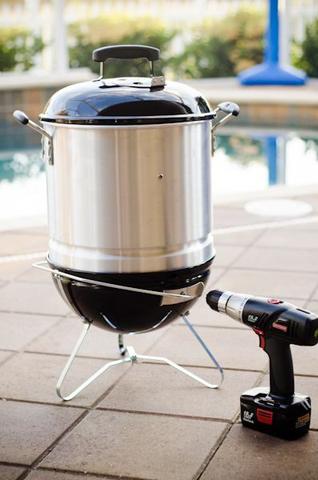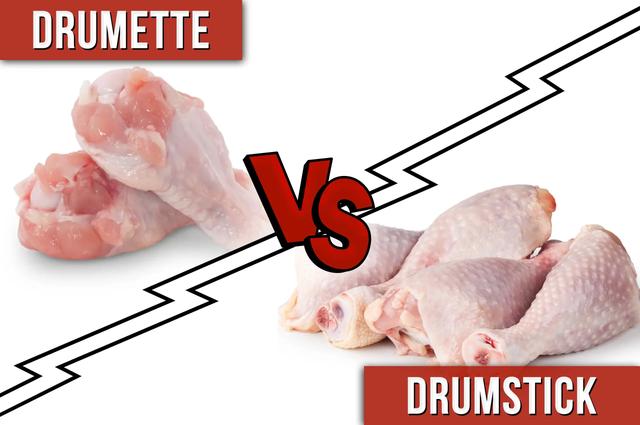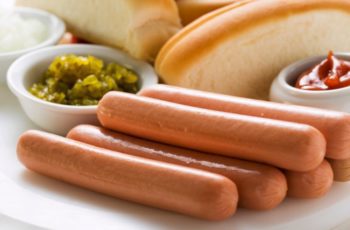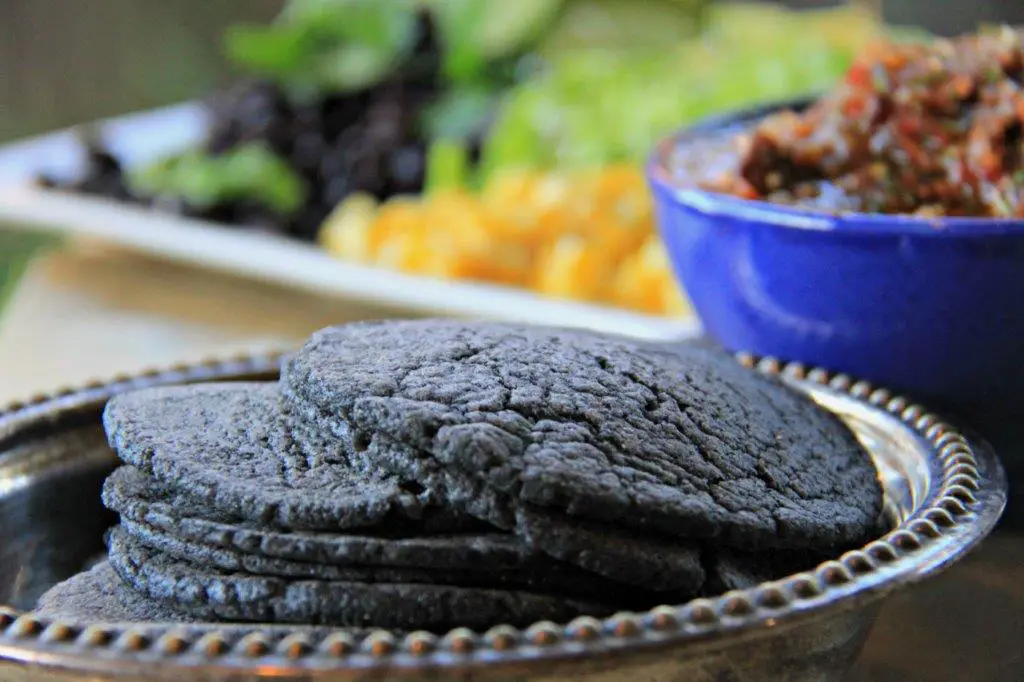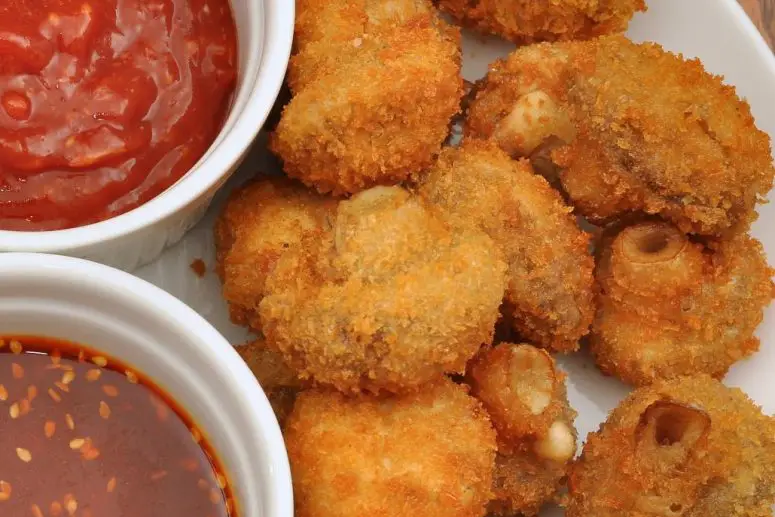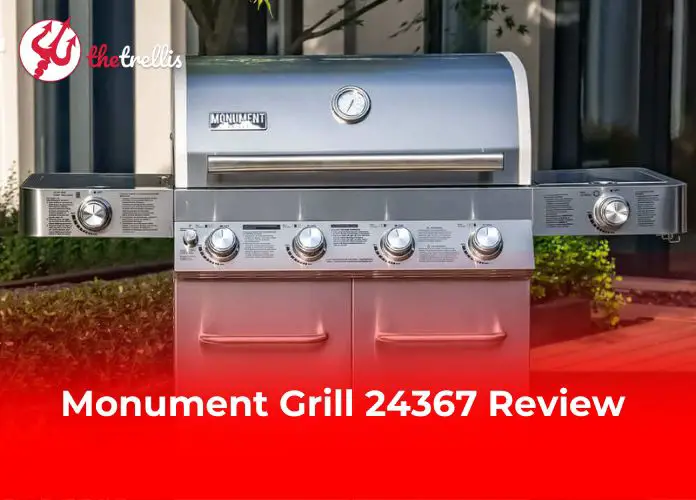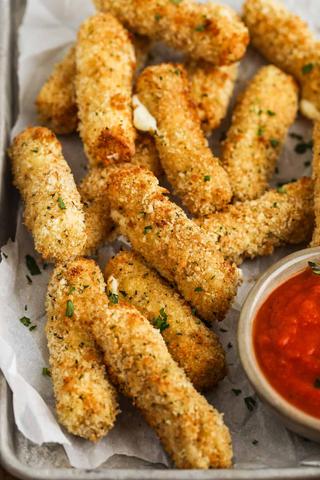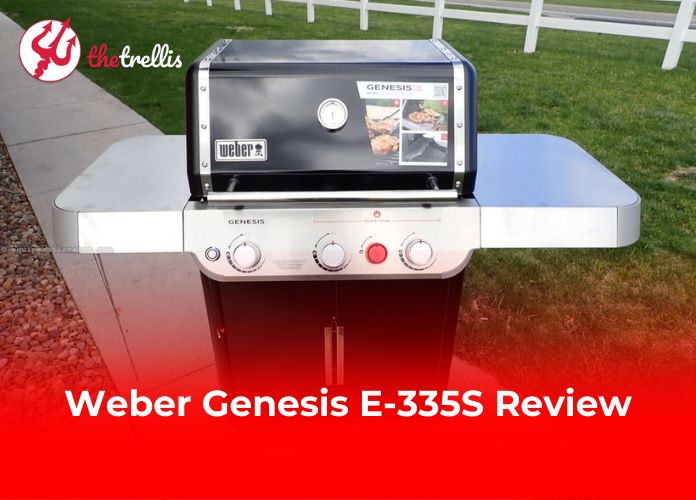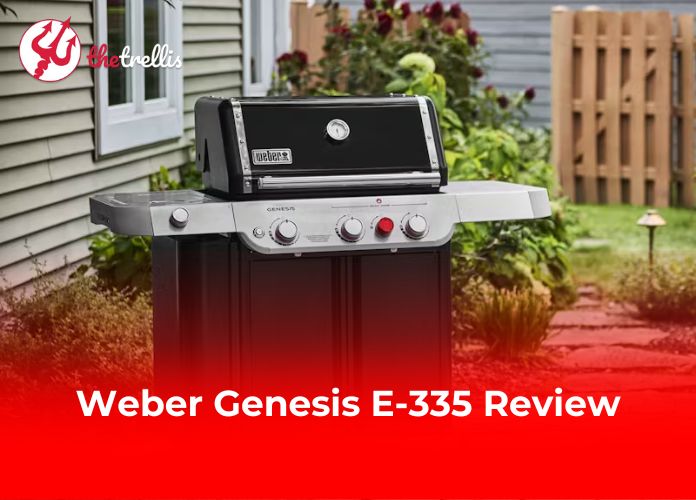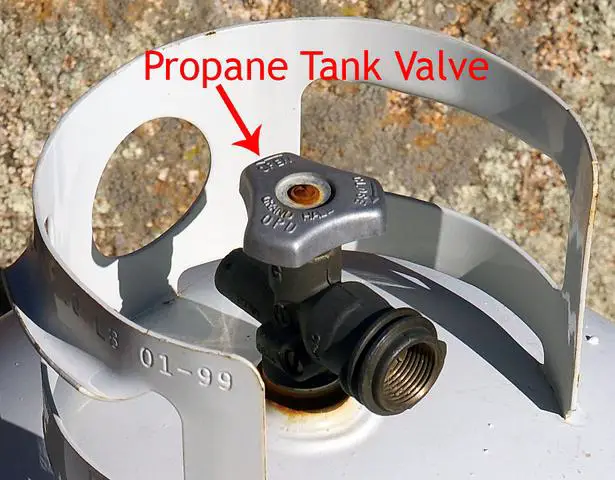
“Propane Tank Safety: Understanding the Risks of Leaving it Open. Discover the potential dangers, risks, and precautions associated with leaving a propane tank open, ensuring your safety and that of those around you.”
THE RIGHT TIME TO TURN OFF THE PROPANE CYLINDER?

It is crucial to turn off the propane cylinder after you have finished grilling. This should be done before turning off the grill itself. Leaving the gas supply unused can pose various risks, including environmental impact and potential harm to individuals nearby. Not only is it a fire hazard, but it can also result in severe injury or even fatal accidents.
Leaving a propane tank on after grilling can lead to hazardous situations. If the tank is knocked over or if the valve is left open, it can become a fire hazard. Even a small spark from something like a nearby cigarette can ignite the liquid petroleum gas and cause an explosion, resulting in property damage and injuries.
In addition to the risk of fires, propane gas can release carbon monoxide, which is odorless and colorless but deadly if inhaled in large amounts. If a propane tank is left on in an enclosed space such as a garage or shed, it can lead to a buildup of carbon monoxide and increase the risk of poisoning.
Leaving the propane cylinder open when not grilling not only poses safety risks but also wastes gas that could be used for future grilling experiences. It is important to conserve propane to save money in the long run.
Furthermore, leaving a propane tank on can result in rust and corrosion over time, especially if exposed to moisture or other environmental factors. This can cause leaks or other damage to occur, making it unsafe for future use.
Lastly, leaving a propane tank on after grilling increases the risk of unauthorized use by children or others who may come into contact with the grill. Turning off the tank after use and keeping it in a secure location prevents potential harm caused by unauthorized access.
RISKS OF LEAVING A PROPANE TANK ON AFTER GRILLING
Leaving a propane tank on after grilling can pose several risks and hazards. First, it can become a fire hazard if the tank is knocked over or if the valve is left open. This can lead to explosions and severe property damage. Additionally, propane gas can release carbon monoxide, which is odorless and deadly if inhaled in large amounts. Leaving the tank on in an enclosed space can increase the risk of carbon monoxide buildup and poisoning.
Furthermore, leaving the propane tank on when not in use can result in gas leaks. Propane is highly flammable, and a leak can lead to dangerous situations or even explosions. Rust and corrosion can also occur over time, causing the tank to weaken and potentially leak. Lastly, leaving the tank on increases the risk of unauthorized access, especially if children are present. This can lead to accidents or intentional harm.
IT CAN BE A FIRE HAZARD
Leaving a propane tank on after grilling can become a fire hazard if it is knocked over or if the valve is left open. Even a small spark, such as someone smoking a cigarette nearby, can ignite the liquid petroleum gas and cause an explosion. This not only puts your property at risk but also endangers you and your family members. It is essential to always turn off your propane tank after grilling to prevent any potential fires.
Leaving a propane tank on can also result in a gas leak, which is highly dangerous as propane is highly flammable. If the valve is not properly closed or if the tank is damaged due to rust or corrosion, it increases the likelihood of a leak occurring. Gas leaks pose a significant risk to both your safety and the environment. To avoid this, always ensure that you turn off the propane tank after use and inspect it regularly for any signs of damage.
Leaving a propane tank on after grilling increases the risk of unauthorized use, especially when children are present. If someone gains access to the grill and finds the tank still turned on, they could accidentally or intentionally cause harm to themselves or others. To prevent unauthorized access and potential accidents, it is crucial to always turn off the tank after use and store it securely in a location away from reach.
Storing your propane tank properly is just as important as turning it off after use. Improper storage can lead to corrosion, gas leaks, and increased internal pressure within the tank. To store your propane tank safely:
- Turn off the gas valve on the propane container to prevent gas from escaping.
- Disconnect the tank from the grill by unscrewing it from the regulator, ensuring both the tank and grill knobs are turned off.
- Inspect the tank for any signs of damage, such as dents or corrosion. If damaged, do not use it and dispose of it properly.
- Store the tank in a cool, dry, and well-ventilated area away from direct sunlight, heat sources, flammable materials, and ignition sources.
To ensure safety, prevent gas leaks and fire hazards, conserve propane, and save money in the long run, it is highly recommended to always turn off your propane tank after grilling. This simple precaution can provide peace of mind and protect you and your loved ones from potential dangers associated with leaving a propane tank on.
CARBON MONOXIDE POISONING
Carbon monoxide is a colorless and odorless gas that can be extremely dangerous if inhaled in large amounts. Leaving a propane tank on after grilling can lead to a buildup of carbon monoxide, especially in enclosed spaces like garages or sheds. This increases the risk of carbon monoxide poisoning, which can be fatal. It is important to always turn off the propane tank after use to prevent the release of this deadly gas.
Leaving a propane tank on after grilling poses several safety hazards. Firstly, it can increase the risk of fire if the tank is knocked over or if the valve is left open. Even a small spark, such as from a nearby cigarette, can ignite the gas and cause an explosion. Additionally, propane tanks can rust over time and become damaged, leading to leaks or other issues. It is crucial to turn off the tank and store it properly to avoid these safety risks.
Leaving the propane tank on when not in use results in unnecessary waste of gas, which can lead to additional expenses. If all the gas is lost from the tank, it will need to be refilled before your next grilling event, costing you extra money. By turning off the tank after grilling, you not only ensure safety but also save money by conserving propane for future use.
Leaving a propane tank on after grilling increases the risk of unauthorized access and potential harm. If someone gains access to the grill and mistakenly or intentionally turns on the valve, they could cause harm to themselves or others. To prevent this risk, always turn off the tank after use and store it securely in a location inaccessible to unauthorized individuals.
Storing your propane tank correctly is essential for safety. Ensure that the gas valve on the tank is turned off to prevent any leaks. Disconnect the tank from the grill and inspect it for any signs of damage. If the tank is dented or corroded, do not use it and dispose of it properly. Store the tank in a cool, dry, and well-ventilated area away from direct sunlight and heat sources. Keep it outside and away from flammable materials and sources of ignition.
In conclusion, it is crucial to always turn off your propane tank after grilling to ensure safety, prevent gas leaks or fire hazards, conserve propane, and save money. Follow proper storage practices and regularly inspect your tank for any damage or wear. By taking these precautions, you can enjoy your barbeque with peace of mind knowing that you have minimized the risks associated with leaving a propane tank on.
IT CAN RESULT IN LOSS OF MONEY
Leaving the propane tank open when not grilling means letting the gas leak, resulting in a loss of gas that could have been used in the next grilling experience. This will require getting the tank filled again for the next BBQ, costing additional money.
Leaving a propane tank on after grilling can increase the risk of unauthorized use. If someone gains access to the grill and the tank is left on, they could accidentally or intentionally cause harm to themselves or others. It is important to always turn off the tank after use and keep it in a secure location to prevent unauthorized access.
A propane tank left on can result in a gas leak if the valve is not properly closed or if the tank is damaged. Rust and corrosion can cause leaks, posing a fire hazard and potential danger to property and people. Regular inspection of the tank for signs of damage or wear is important, and any damaged tanks should be replaced.
To store your propane tank properly, follow these steps: 1) Turn off the gas valve on the propane container to prevent gas leaks. 2) Disconnect the tank from the grill by unscrewing it from the regulator. 3) Inspect the tank for any signs of damage or corrosion; dispose of damaged tanks properly. 4) Store the tank in a cool, dry, well-ventilated area away from direct sunlight and heat sources. Avoid storing tanks indoors as they can release gas and create fire hazards.
Turning off the propane tank after grilling not only ensures safety by preventing gas leaks and fire hazards, but it also helps conserve propane and save money in the long run. By taking a few extra minutes to properly turn off the tank, you can enjoy your meal with peace of mind.
GAS LEAK
Leaving a propane tank on after grilling can result in a gas leak, which can be dangerous as propane is highly flammable. A gas leak can occur if the valve is not properly closed or if the tank is damaged. Propane tanks can rust over time, especially if exposed to moisture or other environmental factors. Rust and corrosion can cause the outer layer of the LPG tank to wither off, leading to a potential gas leak. It is important to always turn off the tank after use and inspect it regularly for any signs of damage or wear.
CORROSION
Corrosion is a major concern when it comes to storing propane tanks. Over time, exposure to moisture and other environmental factors can cause the tank to rust and corrode. This can weaken the structure of the tank and increase the risk of a gas leak. It is important to regularly inspect your propane tank for any signs of corrosion, such as rust or pitting. If you notice any damage, it is best to replace the tank to ensure safe storage and usage. Storing your propane tank in a cool, dry area away from moisture can help prevent corrosion and extend its lifespan.
IT CAN BE RISKY FOR CHILDREN
Leaving a propane tank on after grilling can increase the risk of unauthorized use, especially if there are children present. If a child gains access to the grill and the tank is left on, they could accidentally or intentionally cause harm to themselves or others. To prevent this, it is important to always turn off the tank after use and keep it in a secure location where children cannot reach it.
INCREASED PRESSURE INSIDE THE CYLINDER
Leaving a propane tank on after grilling can cause the pressure inside the cylinder to increase, making it unstable and potentially dangerous for its surroundings. This can lead to accidents or even explosions if the tank is not properly handled.
To avoid the risks associated with increased pressure inside the cylinder, it is important to always turn off the propane tank after use. Additionally, make sure to store the tank in a cool, dry, and well-ventilated area away from heat sources or flames. Regularly inspect the tank for any signs of damage or wear and replace it if necessary.
Turning off the propane tank not only ensures safety but also helps conserve propane and save money in the long run. Leaving the valve open allows gas to slowly escape over time, resulting in waste and unnecessary expenses.
HOW TO STORE YOUR PROPANE TANKS AFTER GRILL
Properly storing your propane tanks after grilling is essential for safety and longevity. Follow these steps to ensure your tanks are stored correctly:
1. Turn off the gas valve on the propane container to prevent any gas from escaping and reduce the risk of a gas leak.
2. Disconnect the propane tank from the grill by unscrewing it from the regulator. Be careful not to damage any connections in the process and ensure both the tank and grill knobs are turned off before unscrewing.
3. Inspect the tank for any signs of damage, such as dents or corrosion. If the tank is damaged, do not use it and dispose of it properly to avoid leaks or other hazards.
4. Store the propane tank in a cool, dry, and well-ventilated area away from direct sunlight and heat sources. It is recommended to keep propane tanks outside rather than indoors to prevent gas release and fire hazards. Additionally, keep them away from flammable materials and sources of ignition.
By following these storage guidelines, you can ensure safety, prevent leaks or accidents, and extend the lifespan of your propane tanks.
TURN OFF THE GAS VALVE
After you are done with your Barbeque, you should always turn off the propane (LPG) tank first and then turn off the grill. Leaving the gas supply unused can be hazardous. Not only will it affect the environment, but the people in the surrounding may inhale that gas. In addition not that it is also a fire hazard. You should always turn off the LPG cylinder after you are done using it. You also have to store it in a safe place where it is away from the reach of children.
A propane tank left on after grilling can become a fire hazard if it is knocked over or if the valve is left open. Imagine if there is someone smoking a cigarette nearby. A small spark is enough to ignite the liquid petroleum gas, and that will always result in an explosion. This can destroy your property and injure you and your family members.
Propane gas can release carbon monoxide, which is an odorless and colorless gas that can be deadly if inhaled in large amounts. If a propane tank is left on in an enclosed space such as a garage or shed, it can lead to a buildup of carbon monoxide and increase the risk of poisoning.
In this time of high financial uncertainty, it is very important to save money wherever you can. However, leaving the LPG tank open when you are not grilling anything means letting the gas leak. This is not just dangerous, but it will also result in loss of gas that you could have used in your next grilling experience.
Leaving a propane tank on can also result in a gas leak which can be dangerous as propane is highly flammable. A gas leak can occur if the valve is not properly closed or if the tank is damaged. Propane tanks can rust over time, especially if exposed to moisture or other environmental factors. Leaving the tank on can accelerate this process and increase the risk of a leak or other damage.
When you are having a family barbeque, you are bound to have some kids over. Leaving a propane tank on after grilling can also increase the risk of unauthorized use. If someone else, such as a child or unauthorized person, gains access to the grill and the tank is left on, they could accidentally or intentionally cause harm to themselves or others. It is important to always turn off the tank after use and keep it in a secure location to prevent unauthorized access.
To avoid these risks, it is important to always turn off the propane cylinder after grilling and store it safely away from heat sources, flames, or other hazards. Additionally, it is a good practice to inspect your propane tank regularly for any signs of damage or wear and to replace it if necessary.
DISCONNECT THE TANK
After you have finished grilling, it is important to disconnect the propane tank from the grill. This can be done by unscrewing the tank from the regulator. Before doing this, make sure both the propane tank and grill knobs are turned off to prevent any gas leakage. By disconnecting the tank, you reduce the risk of a gas leak and ensure that no unauthorized use or accidents occur.
Prior to storing your propane tank, it is crucial to inspect it for any signs of damage. Look for dents, corrosion, or any other visible issues. If you notice any damage, do not use the tank and dispose of it properly. Even if there are no immediate leaks, a damaged propane tank can worsen over time and become prone to leaks or other hazards. Ensuring that your tank is in good condition is essential for safety.
When storing your propane tank, it is important to choose a suitable location. The tank should be kept in a cool, dry, and well-ventilated area away from direct sunlight and heat sources. Avoid storing it indoors as this can create a fire hazard due to potential gas release. Additionally, keep the tank away from flammable materials and sources of ignition to minimize any risks. Proper storage helps maintain the integrity of the propane tank and prevents accidents.
CHECK FOR DAMAGES
Inspect the propane tank for any signs of damage, such as dents or corrosion. It is important to do this before storing the tank to ensure its safety. If you notice any damage, do not use the tank and dispose of it properly. Even if there are no immediate leaks, a damaged tank can worsen over time and become leaky, posing a potential hazard.
After grilling, make sure to turn off the gas valve on the propane tank to prevent any gas from escaping. Then, carefully disconnect the tank from the grill by unscrewing it from the regulator. Be cautious not to damage any connections during this process. Once disconnected, store the propane tank in a cool, dry, and well-ventilated area away from direct sunlight and heat sources. It is crucial to keep propane tanks outside as they can release gas and create a fire hazard indoors.
Turning off your propane tank after grilling is essential for safety reasons. It helps prevent gas leaks or fire hazards that can result from leaving the tank on. By turning off the valve, you also conserve propane and save money in the long run by reducing waste and unnecessary expenses. Always follow proper safety precautions when handling propane tanks and consult the manufacturer’s instructions for your specific grill model to ensure safe usage.
STORE IN A SAFE LOCATION
After you are done grilling, it is important to store your propane tank in a safe location. This will help prevent accidents and keep the tank in good condition for future use. Here are some tips for storing your propane tank:
- Choose a cool, dry, and well-ventilated area to store the tank. It should be away from direct sunlight and heat sources.
- Keep the tank outside and avoid storing it indoors as it can release gas and create a fire hazard.
- Ensure that the storage area is away from flammable materials and sources of ignition.
- If you notice any signs of damage on the tank, such as dents or corrosion, do not use it and dispose of it properly.
- Follow the manufacturer’s instructions for your specific grill model regarding storage recommendations.
FINAL THOUGHTS
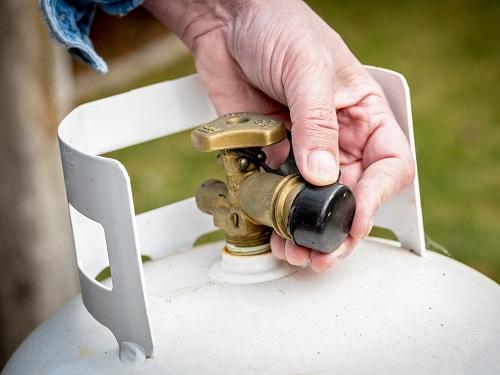
In conclusion, it is crucial to always turn off your propane tank after grilling. Leaving the tank on can pose various risks, including fire hazards, gas leaks, and unauthorized use. It is important to prioritize safety by preventing potential accidents and protecting yourself, your loved ones, and your property from harm. Additionally, turning off the propane tank helps conserve propane and save money in the long run. By following proper safety precautions and storing the tank correctly, you can enjoy your grilling experience with peace of mind.
In conclusion, leaving a propane tank open can be extremely dangerous. It poses significant risks such as fire, explosions, and toxic gas leaks. It is crucial to always ensure proper storage and handle propane tanks with caution. Negligence in this matter can have severe consequences, making it essential to prioritize safety measures when dealing with propane tanks.
Learn More About Grilling
If you want to learn more about grilling, check out these other helpful resources!


